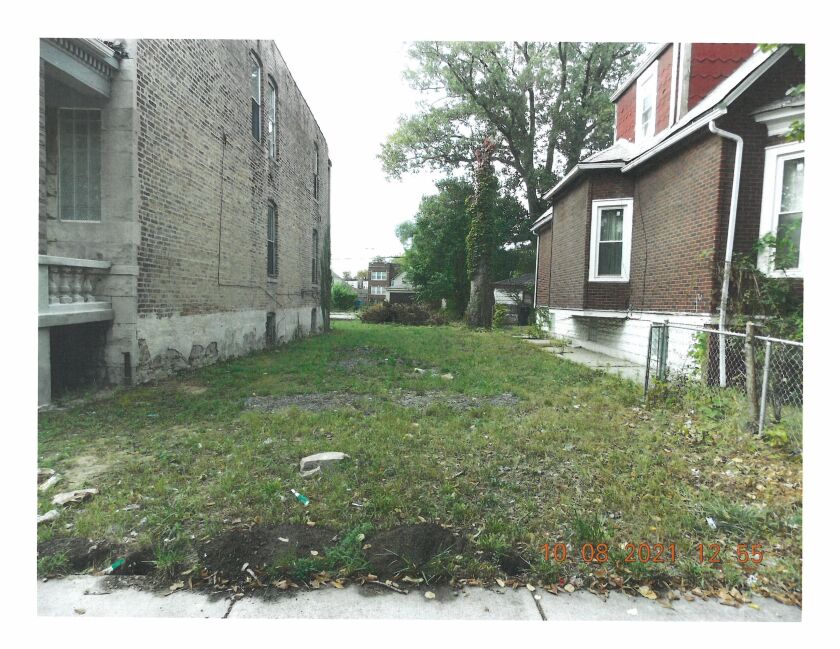Wanda Carter is among thousands of Chicagoans haunted by what have come to be known as “zombie properties.”
It started when Carter bought a house in Englewood in 2004. She fell behind on the mortgage and by 2006 found herself facing foreclosure.
With no prospect of bringing the mortgage current, Carter and her husband moved out in 2008, agreeing to deed the house back to the bank. Her husband died the next month.
Thirteen years later, the property at 6548 S. Morgan St. where Carter’s two-story frame house stood is a vacant lot, the abandoned building demolished in 2018 by the city after it fell into disrepair.
But the city is still trying to hold the 70-year-old widow responsible for the upkeep of the lot, hitting her with thousands of dollars in fines and penalties over the years for code violations like not cutting the weeds — at a property she hasn’t owned for years.
“I’m trapped on a property that is not even there anymore,” she told me. “It’s like this is never ending.”
In “zombie foreclosures,” lenders begin foreclosure proceedings against homeowners but don’t follow through because they want to avoid the financial responsibility that comes with holding title to the property — costs that often exceed the value.
Former owners like Carter later discover their former lender never recorded a new deed, leaving them as the owner of record even though they have no benefits of ownership.
So they’re victimized twice, first when they lose their homes, later when they’re held responsible for ongoing costs, says Mario Reed, a South Holland lawyer who has plenty of experience sorting out zombie foreclosures.
“It’s completely wrong,” Reed said.
He wants legislators to clarify that anyone who acquires a foreclosed property through a judicial sale should be obligated to record a new deed within 90 to 120 days.
Reed also objects to City Hall putting the squeeze on Carter and others when it’s clear they have been put in the middle by more sophisticated financial players.
“It’s municipal extortion,” he said.
What’s most galling about zombie foreclosures is that we all know that if there’s ever any money to be made from these properties in the future, it’s never going to go into the pockets of little people like Carter.
On Friday, Carter, a former hospital administrator who now lives in Lansing, drove downtown to 400 W. Superior St. to appear before an administrative law judge to face one of five complaints the city has filed against her, this one over a $340 fine for not putting a fence up.
A lawyer for the city tried to convince Carter to just pay up, politely shrugging off her protests that she no longer owns the property. In the end, they agreed to continue the case until Nov. 19 while she looks for another lawyer.
Until recently, Carter had never heard of a zombie foreclosure but finds it an apt description.
“It never dies. That’s how I feel,” she said.
Carter bought the house for $142,000, taking out a mortgage for the full price. Five different lenders have held the paper.
Since moving out, Carter has filed for bankruptcy twice in the mistaken belief that would erase any continuing obligation.
She said she started getting code violation notices in 2013 and has been trying ever since to clear up the problem.
She said she has even taken her grandchildren to clean the yard in hopes of avoiding more fines. She considered putting up a fence but said she can’t afford the $2,000 minimum it would cost — and shouldn’t have to.
I reached out to Reed to get a better handle on zombie foreclosures. He developed his expertise working for the Cook County recorder of deeds and Cook County clerk.
While many of Chicago’s zombie properties date to the subprime mortgage crisis of 2008, Reed foresees another explosion of cases by this time next year after the lifting of the foreclosure moratorium that’s been in effect during the pandemic.
Government leaders need to address this immediately for the sake of those in Wanda Carter’s situation — and for those who will soon follow.






